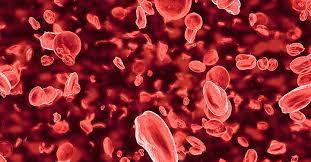Study Reveals Inherited Blood Disorders Common Among Young Children, Calls for Early Diagnosis and Screening

IIE DIGITAL DESK : The recent medical study has revealed a concerning trend in the health profiles of young children in India: a significant number are living with inherited blood disorders, many of which remain undiagnosed due to limited awareness and delayed screening. The findings underscore the urgent need for enhanced diagnostic measures and public health initiatives aimed at early identification and management of these conditions.
The study, conducted by a team of pediatric hematologists and public health researchers across several hospitals, focused on children aged between six months and ten years. It examined a range of inherited blood disorders, including thalassemia, sickle cell anemia, hemophilia, and other less common but serious genetic conditions that affect the composition and function of blood.
What emerged from the data was alarming. A substantial proportion of children, especially in regions with a high prevalence of consanguineous marriages or limited access to healthcare, were found to be either carriers or affected by one or more hereditary blood disorders. The study emphasized that many of these conditions are not easily visible in early stages, often surfacing only when complications arise.
Dr. Ananya Mehta, one of the lead researchers in the study, explained, “We found that nearly one in every 25 children tested carried genes linked to thalassemia or sickle cell disease. The lack of early detection can result in avoidable suffering, repeated hospitalizations, and even mortality in severe cases.”
The research also pointed out that awareness among parents remains low. In many cases, families are unaware that they are carriers of recessive genetic traits that, when passed on to offspring, manifest as serious medical conditions. Simple genetic screening and prenatal counseling could prevent many of these cases, experts say.
Another major challenge is that most public healthcare facilities still do not have routine screening programs for such disorders, particularly in rural and underserved regions. This gap in the system leads to delayed diagnoses, often after symptoms such as persistent anemia, frequent infections, or unexplained fatigue become too severe to ignore.
The researchers are now calling on both central and state governments to take proactive steps. Among the suggested measures are mandatory premarital or prenatal screening in high-risk areas, greater funding for pediatric blood disorder clinics, and integration of genetic testing into routine infant health check-ups.
The study also emphasized the importance of school-based awareness campaigns, particularly in districts where thalassemia and sickle cell anemia are endemic. Educating teachers, parents, and even older students can help spread awareness and reduce stigma, ensuring that affected children get the support they need.
In addition to health complications, the study noted the social and financial burdens that families of affected children often face. Many are forced to make repeated trips to urban hospitals, pay for expensive blood transfusions or medications, and cope with long-term care responsibilities—all of which can be alleviated through early intervention.
Healthcare professionals are also pushing for greater research into new treatments. While gene therapy and bone marrow transplants have shown promise for certain disorders, their accessibility remains limited due to cost and infrastructure constraints in most parts of India.
The study serves as a wake-up call to health authorities, parents, and educators alike. Inherited blood disorders, though often preventable or manageable with early detection, continue to claim a heavy toll on children’s health and development. With timely screening and awareness, the lives of thousands of children could be significantly improved and even saved.
You might also like!















